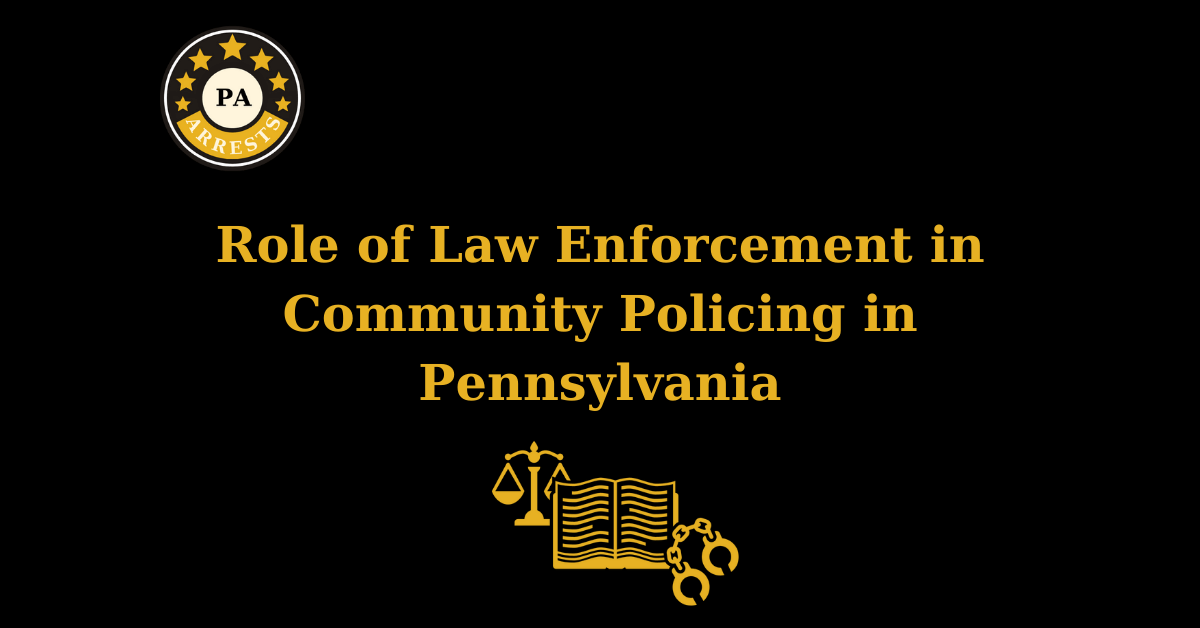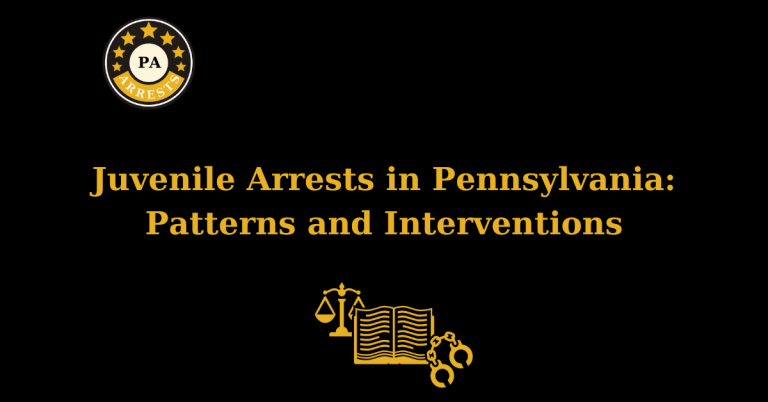Role of Law Enforcement in Community Policing in Pennsylvania

Law enforcement plays a crucial role in Pennsylvania’s community policing efforts. With a commitment to serving and protecting the community, our dedicated officers work tirelessly to maintain safety and build trust among residents. Through collaborative partnerships and proactive strategies, we strive to create a secure and harmonious environment for all.
At Pennsylvania’s Community Policing, we understand that effective law enforcement goes beyond the traditional roles of crime prevention and apprehension. Our officers are trained to engage with the community, fostering positive relationships and empowering residents to take an active role in maintaining public safety. By working hand in hand with community members, we aim to address the root causes of crime and enhance the overall quality of life for everyone.
Our Approach to Community Policing
Building a safer and stronger community requires a comprehensive approach to law enforcement. At Pennsylvania’s Community Policing, we believe in going beyond the traditional roles of crime prevention and apprehension. Our officers are dedicated to engaging with the community and fostering positive relationships that empower residents to take an active role in maintaining public safety.
Collaborative Partnerships for Success
We understand that effective community policing relies on collaboration and partnerships. Our officers work hand in hand with community members, local organizations, and businesses to address the root causes of crime and enhance the overall quality of life for everyone. By forming strong alliances, we can create a secure and harmonious environment where everyone feels safe.
Proactive Strategies for Crime Prevention
Preventing crime is a top priority for our officers. We employ proactive strategies to identify and address potential issues before they escalate. Through community outreach programs, educational initiatives, and targeted enforcement efforts, we strive to create a safe and secure community for all residents.
Empowering Residents for Lasting Change
Empowering residents is at the core of our community policing approach. We believe that when community members are actively involved in maintaining public safety, lasting change can be achieved. Our officers provide resources, support, and education to help residents understand their role in crime prevention and develop the skills needed to make a positive impact.
Building Trust and Transparency
Trust between law enforcement and the community is essential for effective community policing. Our officers are committed to building trust through transparency, accountability, and open communication. We value feedback from residents and continuously work to strengthen the bond between our officers and the community we serve.
Creating a Safer Future Together
At Pennsylvania’s Community Policing, we are dedicated to creating a safer future for everyone. By working together with community members, we can address the underlying issues that contribute to crime and create lasting change. Our officers are passionate about their role in protecting and serving the community, and we invite you to join us in building a safer, stronger Pennsylvania.
FAQs
What is community policing?
Community policing is a collaborative approach to law enforcement that involves building strong relationships between the police and the community they serve. It focuses on proactive problem-solving and crime prevention through increased police visibility and engagement with community members.
How does community policing benefit the community?
Community policing benefits the community in several ways. It promotes trust and cooperation between the police and community members, leading to better crime prevention and detection. It also helps address community concerns and improves the overall quality of life in the community.
What is the role of law enforcement in community policing?
Law enforcement plays a crucial role in community policing. They are responsible for maintaining public safety, building relationships with community members, and addressing community concerns. They work closely with the community to identify and solve problems, develop crime prevention strategies, and provide support and resources.
How can community members contribute to community policing?
Community members can contribute to community policing by actively participating in crime prevention efforts. They can report suspicious activities, communicate with law enforcement about community concerns, and collaborate with the police in developing and implementing crime prevention initiatives. Building strong relationships with law enforcement and being proactive in addressing community issues are key contributions.
What are some examples of community policing initiatives in Pennsylvania?
Pennsylvania has implemented various community policing initiatives. Some examples include neighborhood watch programs, community outreach events, school resource officer programs, and community-oriented problem-solving strategies. These initiatives aim to foster collaboration between law enforcement and community members to enhance public safety and improve the overall well-being of the community.
How can community policing help reduce crime rates?
Community policing can help reduce crime rates by promoting proactive problem-solving and crime prevention strategies. By building trust and cooperation between law enforcement and community members, information sharing becomes more effective, leading to quicker identification and resolution of issues. Additionally, community policing encourages community members to take an active role in crime prevention, making it more difficult for criminals to operate unnoticed.






